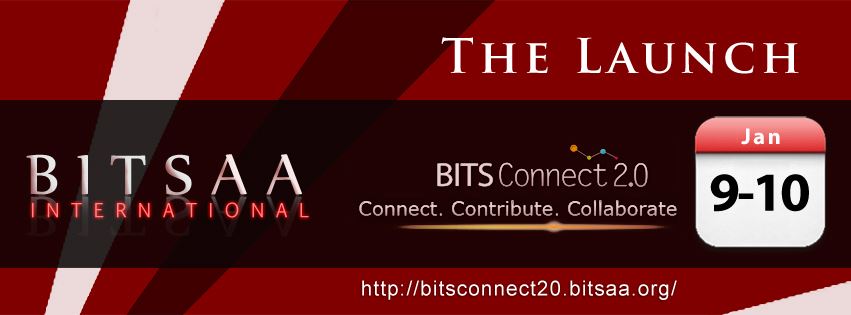Disclaimer: The views and opinions expressed in this article are those of the author and do not necessarily reflect the position of BITSAA International or any of its teams.
Masters of Science offers degrees in Engineering, Physics, Chemistry, etc in a particular or interdisciplinary field. It allows you to switch your area of specialization and explore areas not possible at the Bachelors level. Doing an MS gives you exposure to world class research facilities and professors at the same time opening up global job opportunities. I would state at the outset this is mostly directed at engineering MS aspirants.
Current Trends
BITS PIlani students have consistently secured admission into top ranked universities across the world. 110 students have secured admission in 2013. 53 students of these secured admission into Stanford, Michigan Ann Arbor, Carnegie Mellon, TAMU, National University of Singapore, Georgia Tech and Wisconsin Madison.
Several others secured admission into other world class universities such as ETH Zurich, UT Austin, Purdue, Cornell, University of Urbana Campaign, TU Delft, Virginia Tech, Penn state university.
Areas of interest ranged from traditional such as Machine Learning, VLSI to areas such as Petroleum, Pharmaceutics, Aerospace, Biomedical & Business Analytics.
Computer Science related fields were most popular selected by 41 students. Electrical and Mechanical were close at 14 and 11 admits respectively. Industrial Engineering and Biology had 7 and 8 admits respectively.
To do or not to Do an MS
If you steer clear of these problems, then your MS will be an enjoyable experience
- While Masters is the right choice for some people, it will not be for others. The application process in itself involves considerable expense of time and money upwards of six months and up to 1 lakh. So it is very important that you are sure that this is a step you’d like to take.
- It is not advisable to apply if you are unsure about your interests. Companies when they recruit graduates expect that the candidate is competent and is eager to work in the domain. If you do not like the job profiles or work culture, you will find yourself laden with student debt and forced to work in an area you do not like simply to pay off the loan.
- There is also peer pressure to get a Masters as more and more students pursue qualifications after B.E. Choosing to do an MS for this reason is likely to backfire as one may not be in the right state of mind to plan his career.
- Money matters. Money matters a lot. Pursuing a degree without liking a field is risky as bad work life balance, unable to get along with colleagues, dissatisfaction, and unhappiness will eventually creep into your life. This aspect will not be evident while you are in college but you will appreciate it much more once you finish your PS.
- Doing a Master’s degree also runs the risk of being over qualified. Though this is minimal. People automatically assume you will demand a higher salary or move to a different job as soon as the market improves. So they will be more reluctant to hire you in the first place. This turns into a cycle, do not get a job as you do not have relevant experience, and you cannot get relevant experience as you do not have a job.
- While it is still uncommon in engineering, it is not unheard of that graduates are unable to find jobs after graduating and are forced to come back to India due to visa regulations. Once they arrive here are unable to find jobs as either they are overqualified do not have relevant work experience or simply that the industry does not exist in India.
I want to do an MS what do I do now?
Know what you don’t want to do. It’s the best way to identify which area you want to specialise in. Just like those MCQ’s you solved in BITSAT. It needs some introspection, but mostly, figure out what you don’t want to do, write down what you like and choose something you want. Projects and PS stations might be ideal places to figure this out. Differentiate fields that a more academic oriented than industry. The latter is generally well-paying, the former tends to be more satisfying. Once your area is clear, then making choices for relevant electives, projects, companies to work in becomes much easier.
The most important factor in deciding your admittance would be a CGPA, more specifically the grades in your core subjects. A CG about 8 and at least 3, 4 A’s helps to have a wide choice of universities to apply to. Having a low CG ( <7 ) isn’t the end of the world, but it’s an uphill task.
Work on as many projects as possible would to gain expertise and develop a resume. While working on projects concentrate first on the task at hand. Explore allied areas, network with other people in the field and develop specific skill sets such as programming languages, FEM software.
A simple way to prep for TOEFL and GRE is to read the newspaper or at least editorials regularly. It improves your clarity of thought and speaking. It improves your grammar and vocabulary. It helps you identify upcoming areas and emerging trends and industry. Relevant to MS it will help you construct a good SOP. If you have a good command over English, it helps you in all walks of life.
Understand the financial implications of taking up a MS. Evaluate how much money you have at hand and how much you will need to borrow. Having a good CG helps improve chances of landing a TA (Teaching Assistantship) or RA (Research Assistantship) and the accompanying fee waiver. So study if for nothing else, the money! Trade off your interest in the field versus the job prospects in it. Understand that hobbies are different from work. You may like to code occasionally, but the programmer’s job involves more debugging than actual coding. You need to be in front of a computer more than 12 hours a day. This mismatch between industry and academia is much clearer once you start working.
Should I get work experience before a Master’s Degree?
The only point against this would be that people tend to lose focus after they start working. This easy money in hand and continuing on the job seems a lot easier than taking the extra trouble to apply to grad school. But more often than not this happens to those who weren’t interested in the field in the first place anyways. The simplest way to avoid this issue is to plan beforehand the duration of your tenure in industry. Explore the job opportunities and profiles of seniors in your industry to assess future potential. It will be a tradeoff between the advantages, your own aspirations and disadvantages, financial constraints and family obligations.
A big plus of having job experience on a resume is that it is much easier to land a job abroad you have work ex in India. Even for summer internships at the end of first year, work experience plays a key role. The job market in US and Europe while not bad as the recession is still tepid at best. You will be competing against candidates who have work ex. So unless you have something exceptional to offer you may be passed over.
Working in a company helps you to understand how organizations work. You begin to draw parallels between the manager and a professor, how to present your work, punctuality, delivering on time under pressure. In college were told often to learn everything as we may not know what they might find useful later. After working in a company, you can better identify the subjects and courses that you actually need and concentrate only on those. And every credit in the US costs a lot of money.
Working allows you to taste and freedom and to be responsible. You earn you money and you can choose how to spend. You also tend to meet people from diverse backgrounds from different colleges some better of the new some worse off. You will realize that most people who do what they like, or made and make money don’t have a MS from XYZ University, though having a degree doesn’t hurt your chances. Things you learn from their experiences will give you different perspectives from what you’re used to hearing in the hostel. You learn to live with yourself or together with other people but this time have a lot more cash to blow. You may develop interests find that you’re good at something that you didn’t know before.
Do not underestimate the benefit of a financial cushion from work savings. Think of it as more money to spend during grad school.
Choosing the company to work after college carefully. It may boil down to money versus interest. I would say the best thing is to contact your seniors and family for advice. Choose money if you need it choose money if you can afford it. Most importantly fix your tenure of stay and don’t tell anyone.
Check out the BITS2MSPHD forum for threads, past admits and any other questions you might have. Most likely, you will find a BITSian in your position a few years ago. Email him, call him up, feel free to ask about anything in the forum. And if you secure an MS admit, celebrate, and let the world know about it, atleast in the forum, so that you help the other BITSians.
About the Author: I’m a proud 7 pointer 2007 Mech pass out. I’m specializing MEMS at the University of Freiburg. I’ll be joining college this October.
Aditya Bhuvaneshwaran, Team Leader – Membership Team, BITSAA International.




